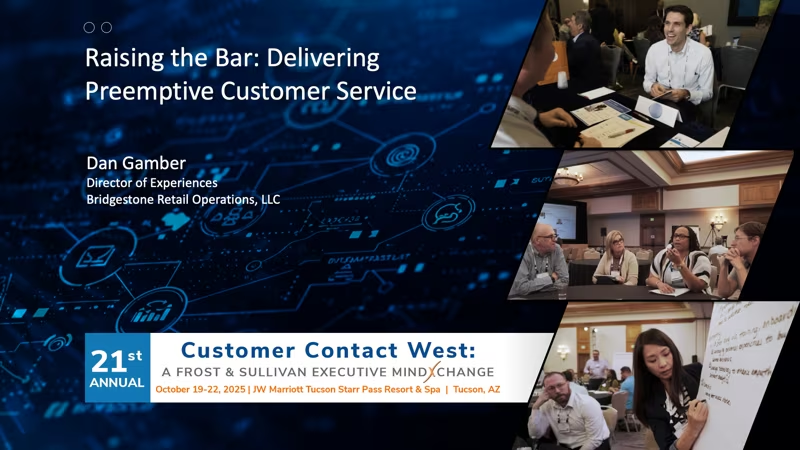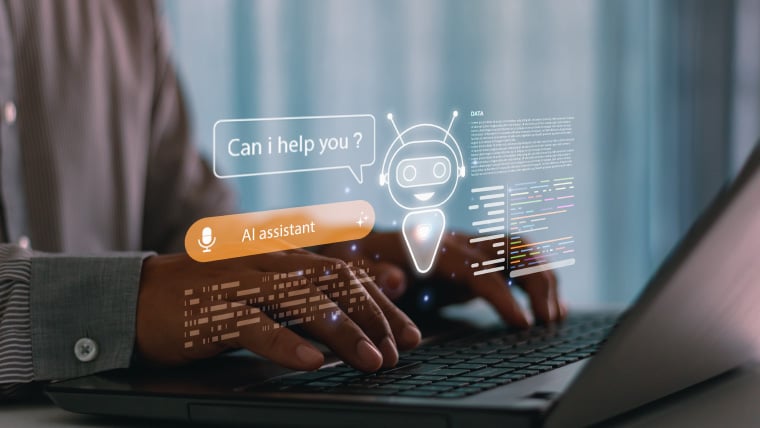Introduction
One of the primary themes of this year’s 11th Annual Customer Contact Europe: A Frost & Sullivan Executive MindXchange, was how digital transformation represents an era of unprecedented exponential change. How can organizations best keep up with today’s increasingly complex and fickle consumer?
Over the course of a busy three days at the Hilton Budapest in Budapest, Hungary, it became clear that automation is at the core of the changes buffeting our world. Anticipating and feeding off of today’s more demanding consumer, organizations are in the midst of shifting their focus from labor-intensive communication services to a more diversified set of platform-based, technology-driven services. Obviously, companies are aware they must anticipate the nature of an ever-more disruptive age, even as they must continue to find and retain the kind of human talent that will help them remain competitive. While tomorrow’s workforce could be radically different from what it looks like today, establishing the appropriate environment for employees can be an often confounding challenge.
In essence, achieving true operational efficiency means keeping pace with what is a very fluid situation, where organizations must master the proper combination of people, process, and technology to cope with this emerging new world. To best serve customers, companies are learning that taking Big Data and forging it into small sparks of data that can be leveraged in effective ways is no minor feat. Segueing from human time to digital time will mean automating data analysis with the use of software bots that run on artificial intelligence (AI), where deep learning algorithms will help better manage customer decision journeys.
A Keynote Focused on Change
Nicola Millard – Head of Customer Insight & Futures at BT Global Services Innovation Team – opened the event with a keynote entitled, Botman versus Super Agent: The Future of the Contact Center. The claim that AI and robots are about to take all our jobs? “That’s been the worry about automation for the past 200 years,” noted Millard. “But are they about to replace the contact center?”According to Millard, the issue is far more nuanced, as autonomous customers and automation alike have already radically changed the contact center in ways we seldom examine. Either way, the “Super Agent” of the future will need an array of new skills.
Thought-Provoking
The heart of the event featured a number of breakout sessions and compelling presentations that synced well with Millard’s opening. For example, Olivier Mourrieras, Vice President Global Customer Experience at E.ON, spoke on, The E.ON Advocacy Journey to Delivering Brilliant Experiences. At the center of having a positive impact on customers, noted Mourrieras, is a customer centric vision. Lisa Steele, Director of Customer Contact for TUI UK&I, agreed, speaking on Building a Brand Trust: The Art of Empathy and Emotional Connection.
In the meantime, Stephen Loynd, Analyst at Frost & Sullivan, offered a thematic complement to Millard’s overview, examining how technology trends from artificial intelligence (AI) to augmented reality, Big Data, and the Internet of Things (IoT) are impacting our world in striking new ways. This is a time when companies are changing the way we communicate even as they discover new ways to create value for customers.
Clearly, the challenges facing our organizations can be vexing. For example, it is no easy task to manage disparate data and knowledge in the context of legacy technology systems, and to leverage Big Data for process innovation, and to master data and analytics in searching for the true root cause of customer-related issues. As Loynd explained, technology is imbedding itself into everything, influencing and disrupting our lives in profound ways. But which systems and strategies are needed to support and manage all the data coming at us in this era of immersive techno-consumerism and the high customer expectations that come with it?
Within the next few years the exponential growth of digitization and machine learning will fundamentally change how businesses create value, satisfy customers, and outperform competitors. The IoT in particular is creating a data-centric, self-optimizing world of immersive experiences. But there are obvious challenges when it comes to making sense of the oceans of data washing over our world.One example of how new tools and techniques are being implemented to understand and serve customers is Salesforce’s new Service Cloud Einstein, which uses an “Intelligent Supervisor” to classify information and automatically route data in real-time, and deploys wave analytics to identify issues at scale.
The event also featured interactive panels. One particularly interesting one was entitled, Aligning Voice of the Customer (VoC) & Voice of the Employee (VoE) with Business Objectives. A group of four experts confronted some surprisingly hard questions such as – what are some of the success factors for organizations’ journeys from pragmatic to sophisticated VoC strategies? How are companies turning VoC data into actionable insights that improve their businesses? All the panelists agreed that too many businesses sit back and wait for customer reactions to products and services, rather than anticipating specific customer preferences through proactive research. Clearly, listening closely to what customers want and don’t want, and then acting on that data, is the more strategic approach. Yet even that latter method remains a challenge to implement – from identifying the essential parts of the customer journey, to avoiding implementations of technology solutions that leave companies more paralyzed than informed. A number of participants from the audience offered suggestions on how they’ve mastered the process of implementing VoC in their organizations, how they’ve captured the VoC, and some of their best practices for operationalizing the VoE.
Site Tour at Emirates Airlines
The end of the three days featured a comprehensive site tour of Emirates Airlines’ impressive contact center. For many, the in-depth review reinforced the fact that we’re living in an era of digitization and machine learning that is impacting everything around us. Conversation hummed with speculation that companies that don’t feel a sense of urgency; that are not anticipating how technology will affect their businesses, may well face a reckoning in the form of disruptive change.
Conclusion
More than ever, the success of organizations will be dependent on their ability to keep pace with technological change. The need to become agile and digitally connected is nothing short of urgent. The absence of a robust and agile technological infrastructure will inevitably result in failure.
At the same time, by utilizing varied methods of analysis, organizations are creating seamless connections that build lifetime customer value, brand recognition, and most important of all, relationships with clients. Still, when it comes to engaging with customers, companies would be wise to keep in mind the importance of maintaining the“human-touch”; recruiting and retaining the right talent has never been so important as it is in today’s ever changing world.
At the end of the event, companies seemed determined to pursue a few key action items:
- Increase digital strategies of customer engagement to better serve the new kind of knowledgeable and demanding customer that emerging
- Offer seamless customer decision journeys through the use of emerging digital channels
- Be prepared to manage in a world characterized by chaos and complexity
- Create strategies that turn data into a tool that best serves the customer
Stephen Loynd is a noted Digital Analyst and Speaker who has led Frost & Sullivan’s Global Customer Contact programs for over five years. Stephen brings a deep understanding and expertise in the digital transformation landscape to clients and colleagues alike. Previously, Stephen was Director, Vertical Market Strategies at Stream Global Services, a business process outsource (BPO) service provider and Global Program Manager, Services Group at IDC, a global provider of market intelligence. Follow him on Twitter @StephenLoynd



